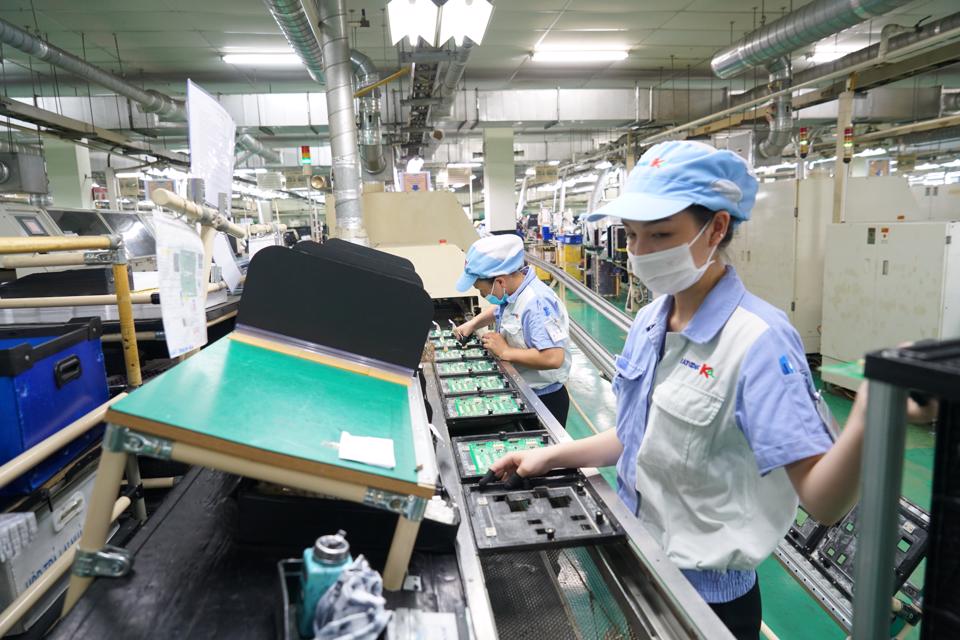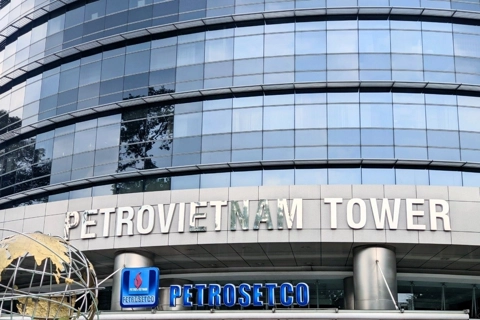Hanoi promotes environmentally-friendly industrial sectors
The city would make policies to incentivize and facilitate the engagement of organizations and individuals in industry and trade in environmental compliance.
Hanoi will promote sustainable and environmentally friendly industrial and trade sectors by maximizing resource use and recycling and reuse of scraps, by-products, and waste.
| Electronics production at Katolec Vietnam in Quang Minh Industrial Park, Hanoi. Photo: Pham Hung/The Hanoi Times |
The move is part of the Hanoi People's Committee's plan to protect the environment in the city's industrial sectors by 2025.
The plan aims to raise awareness of environmental protection laws among agencies, organizations, and enterprises in the industrial and trade sectors, focusing on addressing climate change and utilizing human resources for sustainable production and business practices.
In addition, mechanisms and policies will be promulgated to incentivize and facilitate the engagement of organizations and individuals in the industrial and trade sectors in complying with environmental regulations.
The city's overall objective is to prevent pollution from waste sources, minimize environmental incidents, optimize resource utilization, promote recycling and reuse of scraps, by-products, and wastes, and steer the sectors in a sustainable and environmentally friendly direction.
Among the key goals, the city aims to complete the assessment, inventory, and establishment of a comprehensive database for 70-90% of waste sources in key industrial sectors by 2025, along with the issuance of relevant control policies and regulations.
The city would also provide environmental protection training to 100% of industrial and trade enterprises while promoting eco-friendly plastic bags for daily use in commercial centers and supermarkets.
It would gradually phase out non-biodegradable plastic bags and identify and address environmental risks associated with energy projects such as waste-to-energy, wind power, and solar power, in line with the industrial restructuring plan.
The goal is for all industrial clusters, both operating and newly constructed, to have wastewater treatment plants and achieve a 100% compliance rate.
The plan also stressed the need to establish and refine mechanisms and policies for managing industrial parks, industrial clusters, and handicraft villages, along with building concentrated chemical production and storage clusters to ensure safe chemical operations and compliance with environmental laws.
In artisan villages with a high risk of environmental pollution, mechanisms and policies are also being developed to help production households change their occupations.
Another priority is for the city to refine institutions and policies related to industrial parks and ecological and sustainable industrial clusters.
The Municipal Department of Industry and Trade has been assigned to take the lead and work with relevant departments and agencies to disseminate the law on environmental protection in industry and trade within the city's jurisdiction. The agency is requested to advise on developing and implementing mechanisms, policies, and programs related to environmental protection in the aforementioned fields.












